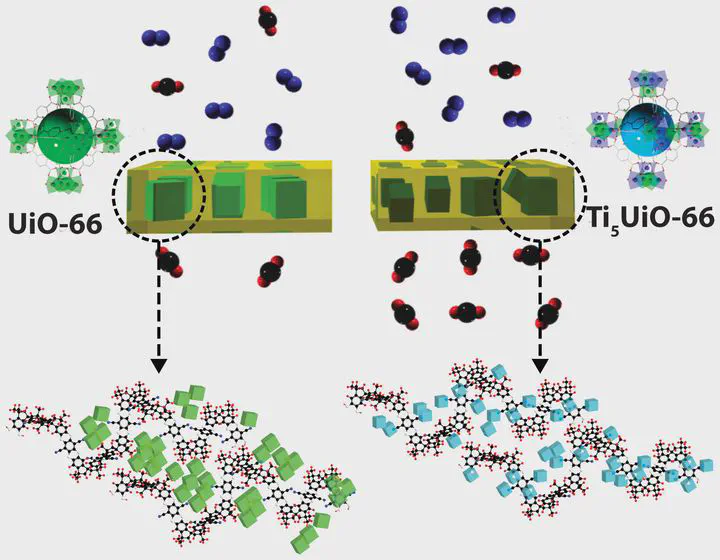Post-synthetic Ti Exchanged UiO-66 Metal-Organic Frameworks that Deliver Exceptional Gas Permeability in Mixed Matrix Membranes
Jan 16, 2015·
 ,
,
,
·
0 min read
,
,
,
·
0 min read
S. J. D. Smith
Prof. Dr. Bradley P. Ladewig
A. J. Hill
C. H. Lau
M. R. Hill

Abstract
Gas separation membranes are one of the lowest energy technologies available for the separation of carbon dioxide from flue gas. Key to handling the immense scale of this separation is maximised membrane permeability at sufficient selectivity for CO2 over N2. For the first time it is revealed that metals can be post-synthetically exchanged in MOFs to drastically enhance gas transport performance in membranes. Ti-exchanged UiO-66 MOFs have been found to triple the gas permeability without a loss in selectivity due to several effects that include increased affinity for CO2 and stronger interactions between the polymer matrix and the Ti-MOFs. As a result, it is also shown that MOFs optimized in previous works for batch-wise adsorption applications can be applied to membranes, which have lower demands on material quantities. These membranes exhibit exceptional CO2 permeability enhancement of as much as 153% when compared to the non-exchanged UiO-66 mixed-matrix controls, which places them well above the Robeson upper bound at just a 5 wt.% loading. The fact that maximum permeability enhancement occurs at such low loadings, significantly less than the optimum for other MMMs, is a major advantage in large-scale application due to the more attainable quantities of MOF needed.
Type
Publication
Scientific Reports